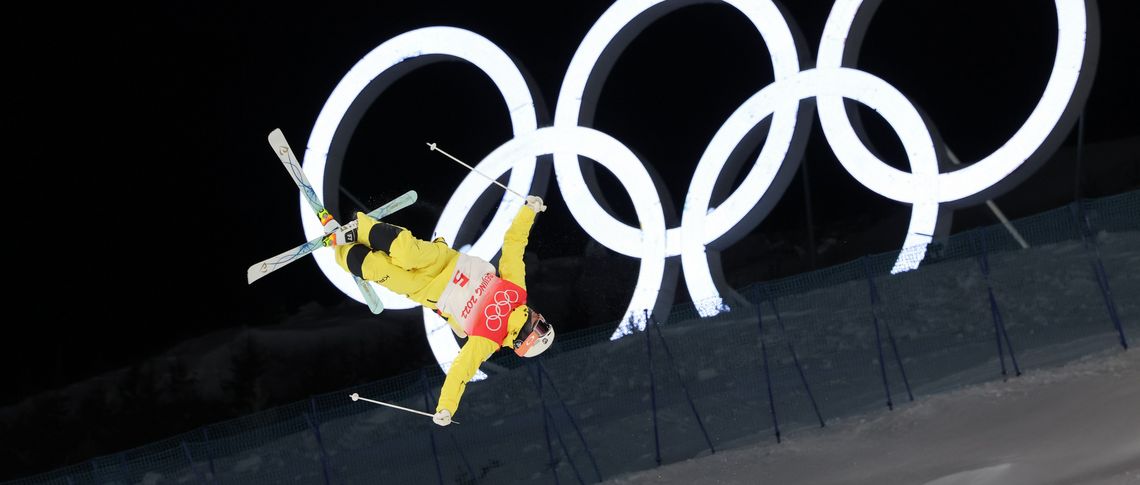When reporting on China’s fight against the pandemic, the media usually focuses on measures considered draconian. After all, in response to the number of cases currently found in every elementary school in Europe, Chinese authorities have sometimes reacted with two-week lockdowns for entire cities with millions of inhabitants.
These lockdowns not only mean that all shops are closed – except for the ones selling daily necessities –, but also that only one person per household is allowed to leave the house once every three days to buy essential items. Mass testing of several million residents is also part of the programme. Welcome to the world of ‘zero Covid’.
On the other hand, we fail to realise this also means that the majority of China’s huge population live their daily lives largely unconcerned and without major restrictions – and have been doing so since the end of the first major lockdown in Wuhan and its province of Hubei in spring 2020.
Lessons from the Tokyo Summer Olympics
In Europe of course, creating closely monitored movement profiles via health apps would become a major political issue. In China, on the other hand, this hardly bothers anyone. The Chinese people only know of the ‘Covid-19 protests’ because they happen abroad. They feel resentment only when local governments sometimes overshoot the mark with their measures.
However, unlike in Europe, a loss of political confidence on the part of broad sections of the population is not an issue in China at the moment. On the contrary, initial studies show that Chinese citizens’ confidence in the central government, at least, has grown in the course of fighting the pandemic. There are also economic reasons for this show of confidence.
After a record low in GDP growth of 2.2 per cent in 2020, the official statistics for 2021 reported a strong result of 8.1 per cent. This puts China once again in a better position than Europe or the US. The fact that China, with its ageing population, a comparatively high prevalence of diabetes, and poor intensive medical care, could have serious reasons for its ‘zero-Covid’ strategy is also rarely discussed in Western media reports.
At the end of 2020, 376 million people in China were not living in their hometown, with 125 million of them even residing in another province.
Right now, however, this strategy is facing its biggest challenge yet. The Beijing Winter Olympics will start on 4 February. The week before, the entire country celebrated Chinese New Year – when most people traditionally return to their families. In normal years, this means an explosive increase in travel: at the end of 2020, 376 million people in China were not living in their hometown, with 125 million of them even residing in another province.
For 2022, the National Reform and Development Commission therefore issued a guideline to limit travel in order to maintain the ‘dynamic zero’ in infections. A strict bubble has been set up for the Olympic entourage and everyone who comes into contact with them. Only those who are deemed non-contagious according to particularly strict – and therefore controversial – limits and who have been fully vaccinated or have been in quarantine for three weeks are allowed to enter the bubble. Precautions were taken for pretty much all eventualities. For example, the organisers announced that the general public in Beijing would not be allowed to help if an Olympic bus were to break down. Contact has to be avoided – at all costs.
The organisers have taken the postponed Tokyo 2021 Summer Olympics as a model – while the European Football Championship could probably only serve as a warning sign. Tokyo did succeed in keeping infections low within the closed Olympic community. However, in news reports at the time, the media focus on the sporting events crowded out the warnings about Covid-19; as a result, the general caution among the Japanese population decreased and the games indirectly contributed to a rapid increase in infections. The effect was compounded by the simultaneous spread of the Delta variant. Beijing has resolved to learn from these events through even stricter precautions and clearer communication.
No room for error
But despite all these precautions, the situation seems more tense than ever – just before the opening. The far more contagious Omicron variant of the virus is to blame. The anti-Covid protection of Chinese vaccines – the only ones approved in the country – seems powerless against it. Is Chinese vaccine nationalism now taking revenge? This approach is the reason why so far not a single mRNA drug has been available on the domestic market. Despite the high vaccination rate, the Chinese population may therefore be ill-prepared for this new threat. This probably also contributes to the uncompromising approach to even minor outbreaks.
In addition, there looms the great political significance of successful Winter Olympic games and – even more important – thorough and perfectly staged pandemic control. The National People’s Congress (NPC) in Beijing is already on the political calendar for March. It will be the last major event before the 20th Chinese Communist Party (CCP) National Congress later this year. The NPC is Premier Li Keqiang’s last opportunity to showcase his administration’s accomplishments before he is forced to vacate the post under the constitution’s two-term limit.
Such a restriction no longer applies to President Xi Jinping, as it was removed from the constitution in 2018. In all likelihood, Xi will remain in office longer than the ten years that was customary for his predecessors, and will be confirmed at the end of the year, first as general secretary of the CCP and finally as state president in the spring of 2023.
The US and some of its allies have announced a diplomatic boycott of the games to protest the government’s repression of ethnic minorities in the Xinjiang Uyghur Autonomous Region.
To lessen the impact of this breach of convention, the government needs to have an impeccable record. It doesn’t help matters that the Winter Olympics are already controversial internationally because they are ecologically questionable and politically sensitive. The US and some of its allies have announced a diplomatic boycott of the games to protest the government’s repression of ethnic minorities in the Xinjiang Uyghur Autonomous Region.
Thus, if the Olympic Games do not bring the hoped-for reputational gains, then the government must be all the more careful not to provoke any negative reaction on the part of its own population. The government will however calmly accept protests from athletes from other countries and other members of the Olympic camp about the unusual conditions. To dampen expectations, the Olympic organisers have now announced that the goal is not ‘zero contagion’ but ‘zero spread’ during the games. China is expected to stick to its ‘dynamic zero-Covid’ strategy until the NPC in spring 2023.
What happens after that is an open question. Even if China’s government has been well on track with its strategy so far – and no change of course is foreseeable any time soon –, the country’s current isolation probably cannot be maintained much longer.In any case, the associated costs will become increasingly apparent. Cautious discussions on this topic have also begun in China. The unofficial global competition between the ‘zero Covid’ camp and other approaches on how to best deal with the pandemic remains tense. Developing a suitable exit strategy is the next Olympic-sized challenge for everyone. For China, however, it is all the more difficult because the political leadership is so determined to use the fight against the pandemic to maintain its own legitimacy.






